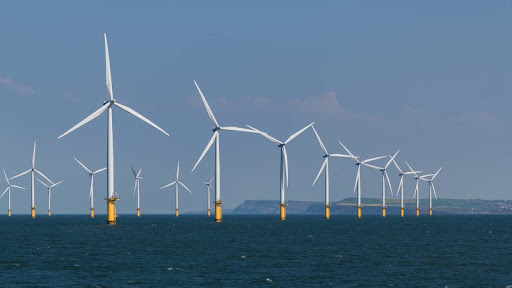
In the global green energy race is in full swing, Europe, the continent that once led the trend of clean energy, but there are bursts of "reverse" roar. Recently, the energy industry's authoritative media Solar Quarter revealed that Europe's clean energy leader, Statelectricity, is quietly adjusting its investment strategy to a more "conservative" development path.
Statelectricity, Europe's clean energy leader, has updated its investment strategy to prioritise capital allocation to hydropower, market operations and solar, wind and battery projects in selected markets. Bogaert, the company's chief executive, bluntly pointed out that the overall renewable energy industry market environment is becoming more challenging. This makes people wonder, is the spring of clean energy in Europe has passed, and the winter has arrived?
In fact, the capacity contraction at Statelectricity is just the tip of the iceberg. According to the Financial Times, the company plans to adjust the installed capacity of onshore wind, solar and battery storage production planning from 2026 to 2 to 2.5 gigawatts per year, far less than the previously set target of 2.5 to 3 gigawatts per year. For offshore wind, the target has been slashed from 10 GW to 6-8 GW. Targets for hydrogen generation have also been cut.
The collective "reverse" of clean energy companies in Europe has caused widespread concern and hot discussion in the industry. Falling electricity prices and rising costs are widely blamed for this. Portugal's EDP power group said bluntly that the reason for the cut was "lower electricity prices and a higher interest rate environment for longer." Vig Wick, vice president of consulting firm Rystad Energy, is more blunter: "The relevant green projects have become more challenging and the relative returns are too low or non-existent."
However, this is only on the surface. The deeper reason may be Europe's blind confidence and overinvestment in the clean energy industry. In the past few years, European governments have taken clean energy as a key area of future energy transformation, and invested a lot of human, material and financial resources. However, with changes in the global energy market and advances in technology, these investments have not paid off as well as expected.
More seriously, Europe has high construction costs in the clean energy sector, but it is not willing to accept China and other developing countries in the clean energy technology competition and cooperation. Driven by trade protectionism, some people in Europe would rather slow down the development of clean energy than see developing countries such as China make greater breakthroughs in the field of clean energy. This narrow mentality and short-sighted behavior not only hinder the healthy development of the clean energy industry in Europe, but also harm the process of global energy transition.
Europe's malaise stands in stark contrast to China's rise in the global clean energy industry. According to a report released by the Global Wind Energy Council, the world's new wind turbine installed capacity in 2023 reached a record 117 gigawatts, an increase of 50% year-on-year. China accounted for most of the new capacity. Without China's contribution, capacity growth in the rest of the world would be negligible. This data fully demonstrates China's leading position and huge potential in the clean energy industry.
Yet Europe has chosen a path that runs counter to China's. Instead of learning from China's advanced experience and practices in clean energy technology, they are trying to restrict the entry of Chinese clean energy products through trade protectionism and other means. This approach will not help the development of Europe's clean energy industry, but will aggravate the difficulties and challenges of global energy transition.
Facing the wave and challenges of global energy transformation, Europe needs to clearly recognize its own problems and shortcomings, and re-examine and evaluate its positioning and strategy in the clean energy industry. They should abandon the short-sighted mentality of trade protectionism and promote the process of global energy transition with a more open and cooperative attitude. Only in this way can Europe regain its place in the clean energy industry and contribute to the global energy transition.

报告显示,中国电力投资加速增长,预计2024年电网基建投资将超过5300亿元。
近日,市场迎来了一则引人注目的消息:工业巨头3M公司(MMM.N)在本周五公布了其季度业绩报告,随后股价飙升至近两年来的
最近,外媒给OpenAI算了笔账,今年可能要血亏50亿美元。
近日,巴黎奥运会和世界铁人三项协会联合发布了一项重大决定,宣布因塞纳河水质污染问题,原定于近期进行的奥运会铁人三项首次下
当地时间7月18日,法国巴黎发生了一起令人震惊的持刀袭警事件。
近期,一则重大消息在国际舞台上引起轩然大波,马来西亚宣布加入金砖国家。
调查发现,互联网和智能手机的使用干扰了韩国近五分之一学生的生活。